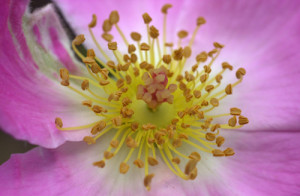A collaboration between researchers of three universities in Sweden led to very interesting findings that have been published in the scientific journal called PLoS ONE. What were these findings about and why can there be a link with antibiotics?
In fact, it was discovered that honey bees possess inside their stomachs a lot of healthy lactic acid bacteria. These bacteria may be beneficial for the health of honey bees.
Similarly, a post on the Swedish site slu.se presents the following:
Honey bees possess an abundant, diverse and ancient lactic acid bacteria microbiota in their honey crop with beneficial effects for bee health, defending them against microbial threats.
Furthermore, it seems that this natural defense that honey bees have is already being used in the creation of honey. Effectively, it is believed that when honey bees collect the nectar and the pollen, harmful microorganism are contained in these products from flowers. However, these harmful microorganisms are removed by the bacteria inside the honey bees’ stomachs. Accordingly, a release by the University of Lund mentions:
The researchers have also seen that large quantities of harmful microorganisms such as bacteria, yeasts and fungi are found in the nectar and pollen that the bees collect from flowers to make honey and bee bread. These microorganisms could destroy the food through fermentation and mould in just a couple of hours, but in fact, the healthy bacteria in the honey stomach kill all the microorganisms.
Nevertheless, a very important point derived from the work of the researchers is that honey bees that are treated with antibiotics may have this natural line of defense deteriorated. Effectively, the article quoted earlier also states that:
The bees have their own defense system against disease in the form of cooperative healthy bacteria. However, this system is weakened in commercially farmed bees that are treated with antibiotics, suffer stress, eat synthetic food instead of their own honey and bee bread and are forced to fly in fields sprayed with pesticides.
Consequently, with the need to face, if possible, the colony collapse disorder it may be advantageous for beekeepers to know about the fact that treating bees with antibiotics is not necessarily helping them.
To get Free email lessons about backyard bee keeping, I invite you to Click Here for more or visit:


